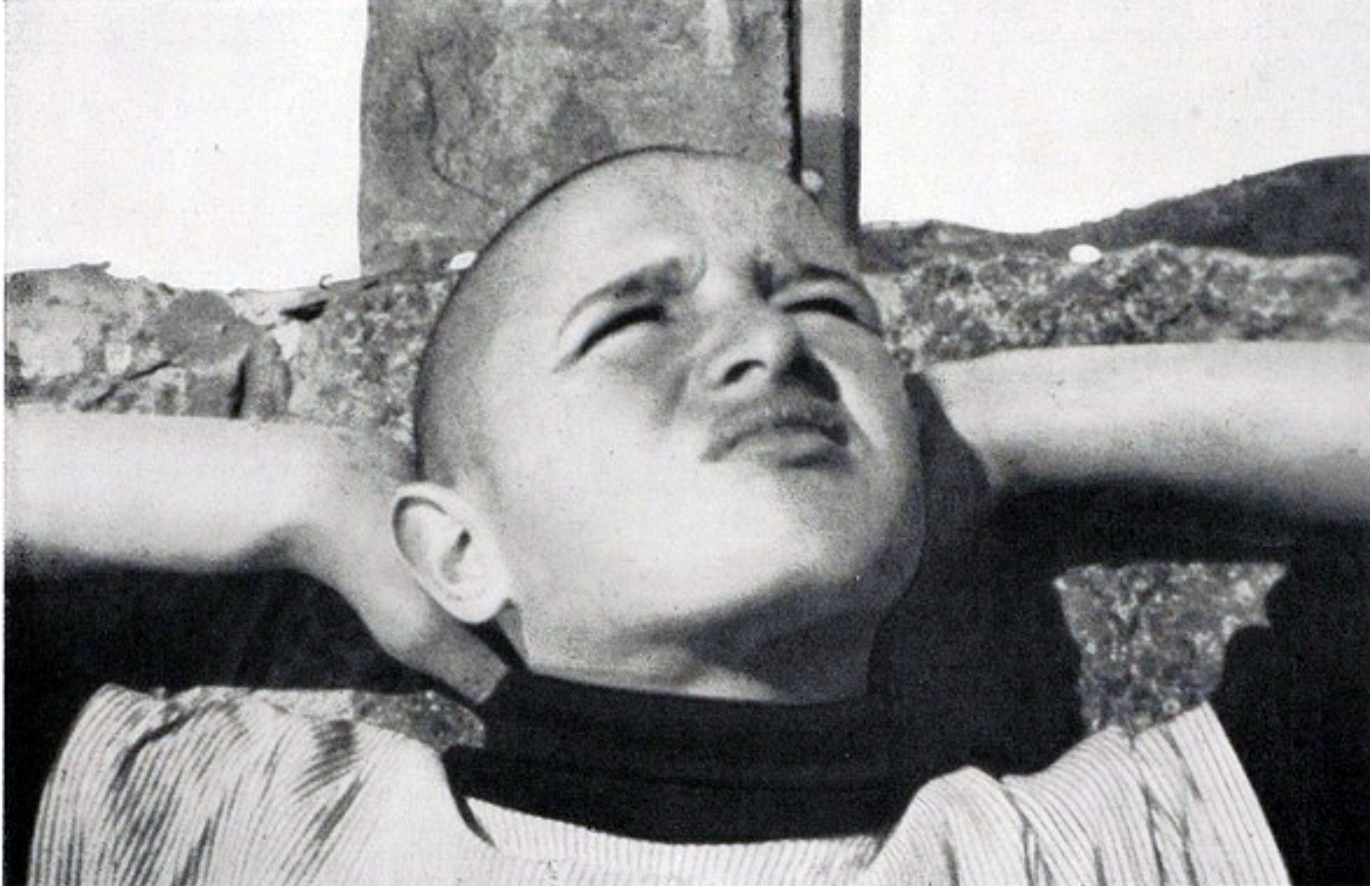
—Il ventuno 28 (Review of the G.U.F. of Venice), May 1935, p. 16 Emporium: Rivista Mensile Illustrata d'arte e di Cultura (Monthly Illustrated Review of Art and Culture) June 1935
Italy
787 ft
format unknown
Unknown
"a soggetto lungho normale"/Fiction feature film
"Arco felice, realizzato da Domenico Paolella: collaborazione generale di Remigio del Grosso. È’tra i film a soggetto, a formato ridotto, quello che più di tutti gli altri tiene conto della importanza dello scenario - montaggio, della continuity per dirla con una precisa espressione. Infatti la continuità narrativa e visiva e mantenuta costante e precisa dal principio alla fine, in unione ad una singolare efficacia descrittiva, piuttosto sintetica dell'ambiente e dei tipi: sono questi ragazzi della strada e del porto, gli scugnizzi napoletani, di cui il film si propone di mostrare la rigenerazione, compiuta attraverso la organizzazione dei ragazzi nelle colonie permanenti dell'Opera Nazionale Balilla. La dimostrazione e assolutamente priva di ogni elemento retorico e il racconto non ha incertezze; assolutamente senza didascalie, il film non richiederebbe nemmeno il parlato, tanto gli autori si sono preoccupati di rendere tutto attraverso immagini, in un procedere di andante mosso che ben si addice al tema del film. Sopratutto e chiaramente espresso il contrasto tra uno dei ragazzi e gli altri; questi ormai nella via della rigenerazione, quello invece ancora perplesso e scontroso di fronte alla nuova vita· i due motivi sono seguiti parallelamente secondo il sistema caro ai suoi tempi a Griffith, col mostrare i ragazzi inquadrati nelle loro diverse attività, in una gita, e l'altro solo di fronte al mare; il ragazzo fugge ne alcuno lo richiama; ma quando si trova nel porto, una assordante confusione lo invade ed egli ritorna alla colonia al momento dell'ammaina bandiera. Forse in quest'ultima sequenza il film riesce un po' sbrigativo; ma tuttavia anche qui come nel resto si avverte la freschezza e la sincerità della narrazione e delle espressioni degli interpreti scelti dai realizzatori tra gli stessi ragazzi di una colonia."
"Arco felice, directed by Domenico Paolella: general collaboration by Remigio del Grosso. More than any other small format fiction film, it takes into account the importance of the relationship between screenplay and the montage, of the continuity, to use a precise expression. In fact, the narrative and visual continuity is kept constant and precise from the beginning to the end, together with an original rather concise description of the environment and characters: these boys of the street and of the port, the Neapolitan street urchins, of which the film proposes to show the rehabilitation, accomplished through the organization of the boys in the permanent camps of the Opera Nazionale Balilla, The development is absolutely devoid of any rhetorical element and the story has no ambiguities; absolutely without inter-titles, the film would not even require sound, to such an extent have the authors have taken care to render everything through images, in a proceeding of a moving andante that well suits the theme of the film. Above all, the contrast between one of the boys and the others is clearly expressed; the latter are now on the road to rehabilitation, while the former is still perplexed and surly in the face of his new life. The two motifs are followed in parallel according to the system dear to Griffith in his day, showing the boys framed in their various activities while on an excursion, and the other alone in front of the sea; the boy runs away and no one calls him back, but when he finds himself in the port, a deafening confusion invades him and he returns to the colony at the moment of the lowering of the flag. Perhaps in this last sequence the film is a bit hasty, but here, as in the rest, you can feel the freshness and sincerity of the narrative and the expressions of the interpreters chosen by the makers among the same boys of a camp."
—Il ventuno 28 (Review of the G.U.F. of Venice), May 1935, p. 16
Do you know where this film is? Get in touch with us at amdb@ucalgary.ca.